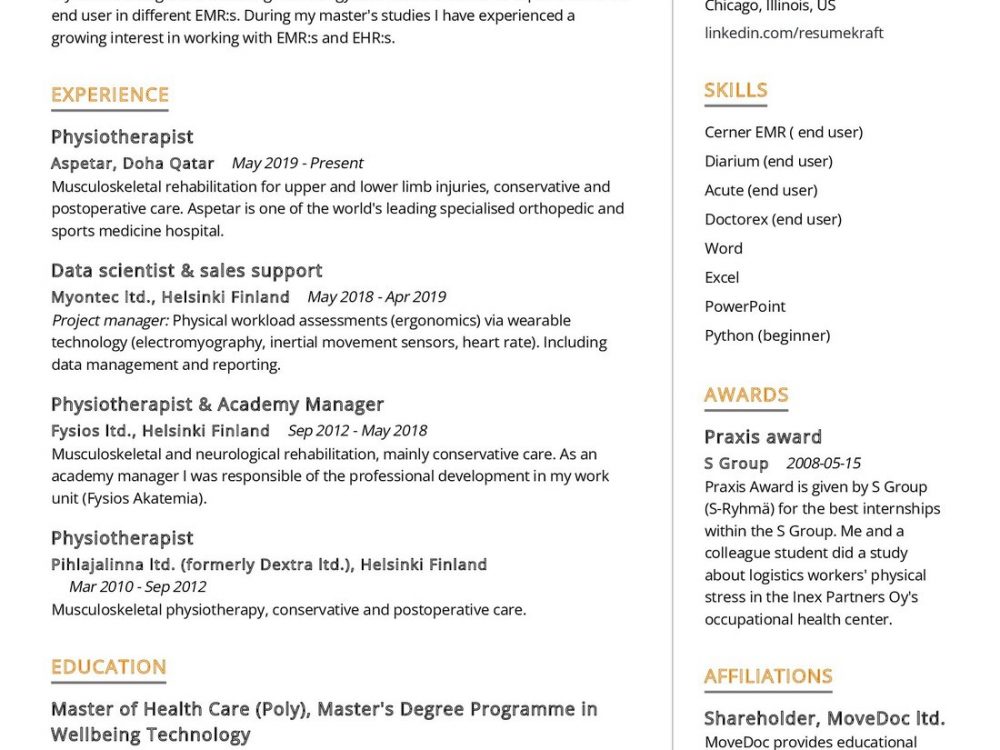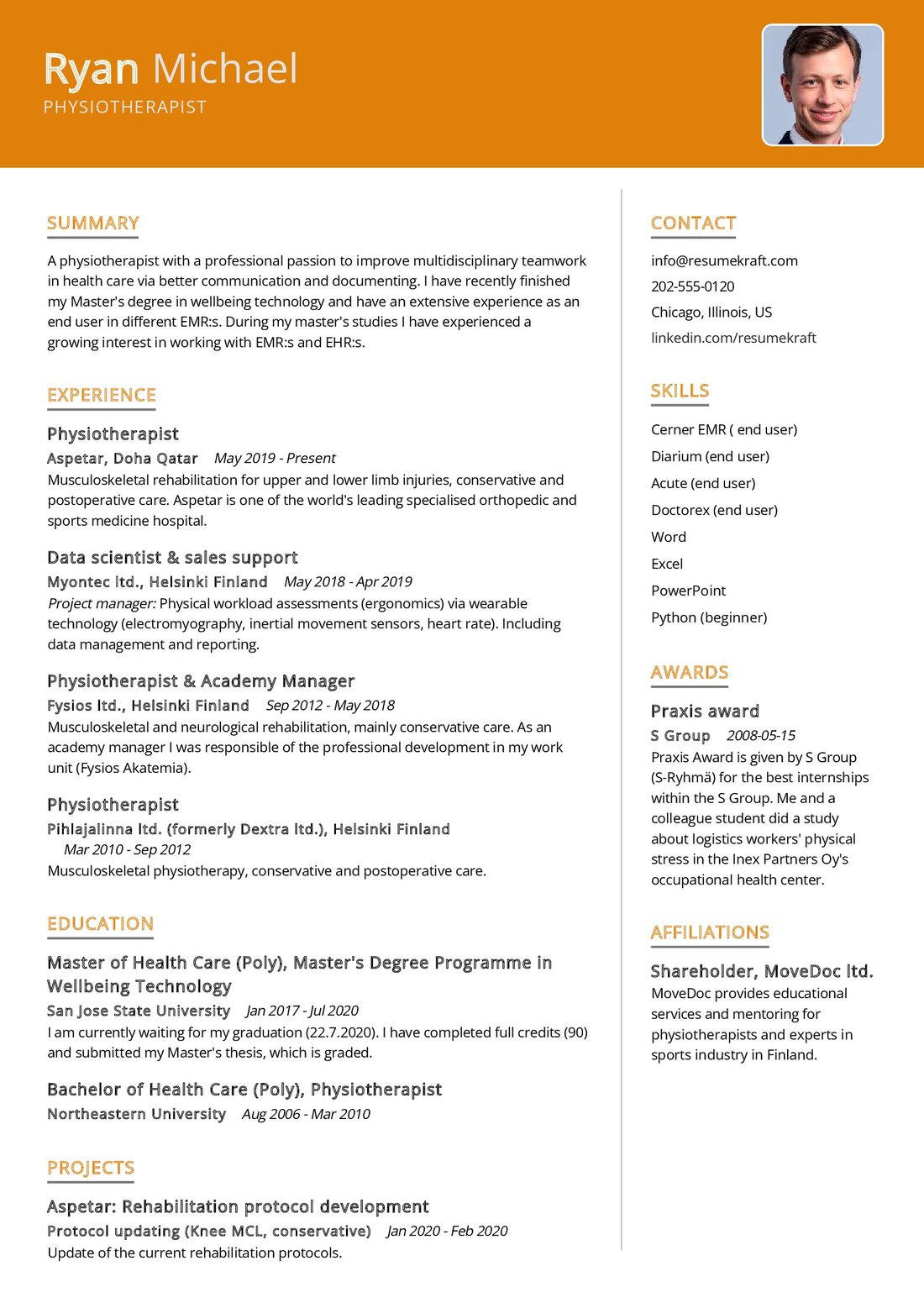What is the Role of a Physiotherapist?
Amid the realm of healthcare, the role of a Physiotherapist stands as a crucial pillar of support for patients seeking physical rehabilitation and pain management. This position embodies the essence of compassion and expertise, catering to individuals with diverse physical ailments, injuries, or disabilities. Let’s delve deeper into the multifaceted role of a Physiotherapist, a profession that demands a deep understanding of human anatomy, coupled with the ability to provide personalized care and rehabilitation to patients in need.
A Physiotherapist is tasked with the responsibility of assessing, diagnosing, and treating patients’ physical conditions, devising customized treatment plans that aim to restore mobility, alleviate pain, and improve overall physical well-being. They work closely with patients, aiding them in regaining strength, flexibility, and functionality, utilizing a combination of manual therapy, exercises, and specialized equipment. Their role extends beyond the realm of treatment, as they also educate patients on preventative measures and lifestyle adjustments to ensure long-term physical health and well-being.
What are the Physiotherapist Job Requirements?
Embarking on the path of becoming a Physiotherapist necessitates fulfilling a comprehensive set of requirements, a journey that is both challenging and rewarding. Let’s delve deeper into the prerequisites one needs to fulfill to embrace the role of a Physiotherapist:
- A Bachelor’s or Master’s degree in Physiotherapy or a related field, showcasing a strong foundation in the principles of physical rehabilitation and therapy.
- Comprehensive knowledge of human anatomy and physiology, including a deep understanding of musculoskeletal and neurological systems.
- Hands-on experience in clinical settings, where you have honed your skills and gained practical insights into patient care and treatment planning.
- Strong communication and interpersonal skills, essential for building rapport with patients and collaborating with healthcare professionals effectively.
- Proficiency in assessing patients’ physical conditions and designing tailored treatment plans, showcasing your ability to provide personalized care.
- Adherence to ethical standards and regulations within the healthcare industry, ensuring patient confidentiality and professional conduct at all times.
Continuously seeking professional development opportunities and additional certifications in specialized areas of physiotherapy can further enhance your profile in this competitive field.
What are the Responsibilities of a Physiotherapist?
The role of a Physiotherapist encapsulates a wide array of responsibilities, each reflecting the dedication and expertise required to provide comprehensive care to patients in need. Let’s explore the core responsibilities that define this role, each task emphasizing the importance of holistic patient care and well-being:
- Conducting thorough assessments of patients’ physical conditions, including evaluating their range of motion, muscle strength, and functional abilities.
- Devising personalized treatment plans, incorporating various physical therapy techniques such as exercises, manual therapy, and electrotherapy to address patients’ specific needs.
- Educating patients on proper techniques for performing exercises and activities, empowering them to actively participate in their recovery journey.
- Collaborating with other healthcare professionals, including doctors, nurses, and occupational therapists, to ensure a comprehensive and integrated approach to patient care.
- Monitoring patients’ progress throughout the treatment process, making necessary adjustments to the treatment plan to facilitate optimal recovery and rehabilitation.
- Providing emotional support and encouragement to patients, fostering a positive and conducive environment for their physical and mental well-being.
- Keeping abreast of the latest advancements in physiotherapy and integrating evidence-based practices into the treatment process, ensuring the highest standards of care for patients.
Each responsibility reflects the commitment and dedication required to facilitate patients’ recovery and improve their quality of life.
Physiotherapist CV Writing Tips
As you endeavor to create a compelling CV that highlights your expertise and commitment to patient care, consider the following tips to effectively showcase your skills and experience:
- Highlight your experience working with diverse patient populations, underscoring your ability to cater to varying needs and conditions.
- Detail specific rehabilitation programs you have developed, demonstrating your ability to create tailored solutions for patients’ unique challenges.
- Include measurable outcomes of your interventions, such as improved range of motion or increased muscle strength, to illustrate the effectiveness of your treatment approach.
- List any additional certifications or specialized training you have undertaken, emphasizing your commitment to ongoing professional development and excellence in the field of physiotherapy.
- Customize your CV for specific job applications, emphasizing relevant skills and experiences that align with the desired position.
Each tip serves as a guide to crafting a CV that effectively communicates your skills and dedication as a Physiotherapist.
Physiotherapist CV Summary Examples
Your CV summary serves as a concise yet powerful introduction to your professional profile, encapsulating your experience, skills, and value as a Physiotherapist. Here are some examples to inspire your own summary:
- “Compassionate and dedicated Physiotherapist with 8 years of experience, adept at providing comprehensive rehabilitation programs and fostering a positive patient experience.”
- “Patient-focused Physiotherapist with a proven track record in devising effective treatment plans for diverse musculoskeletal conditions, committed to delivering exceptional care and improving patients’ quality of life.”
- “Experienced and empathetic Physiotherapist specializing in neurological rehabilitation, skilled in designing personalized therapy programs that promote functional independence and overall well-being.”
Each summary serves as a window into your professional journey, offering a glimpse of your expertise and commitment as a Physiotherapist.
Create a Strong Experience Section for Your Physiotherapist CV
Your experience section serves as the cornerstone of your CV, showcasing the depth and breadth of your professional journey. It is an opportunity to highlight the impact you have made in the lives of your patients and the contributions you have made to the field of physiotherapy. Here are some examples to guide you:
- “Provided comprehensive physical therapy services to a diverse caseload of orthopedic patients, resulting in a 30% improvement in patients’ range of motion and functionality within the first six weeks of treatment.”
- “Developed and implemented specialized exercise programs for patients with neurological conditions, resulting in significant improvements in balance, coordination, and overall functional abilities.”
- “Collaborated with a multidisciplinary team to create holistic rehabilitation plans for patients recovering from sports-related injuries, fostering a seamless transition from injury to performance.”
Each experience narrates a story of dedication, expertise, and impactful patient care, highlighting your contributions to the field of physiotherapy.
Sample Education Section for Your Physiotherapist CV
Your educational background serves as the foundation of your expertise and proficiency as a Physiotherapist. It reflects your commitment to learning and your continuous development in the field of healthcare. Here’s how you can outline your educational achievements:
- Master of Science in Physiotherapy, XYZ University, a comprehensive program that equipped you with advanced knowledge and practical skills in rehabilitation and patient care, 2014.
- Bachelor of Science in Health Sciences, ABC University, the starting point of your journey in understanding the complexities of human health and well-being, 2011.
- Specialized Certification in Neurological Rehabilitation, a testament to your commitment to enhancing your skills and expertise in a specialized area of physiotherapy, 2016.
Each educational milestone symbolizes your dedication to providing exemplary care and making a positive impact in the lives of your patients.
Physiotherapist Skills for Your CV
Your skill set as a Physiotherapist encompasses a diverse array of abilities that are essential for providing comprehensive patient care and rehabilitation. Let’s outline the key skills that a Physiotherapist should possess:
Soft Skills:
- Empathy and compassion, the ability to understand and address patients’ emotional and physical needs with care and sensitivity.
- Effective communication, the skill to convey complex medical information in an understandable manner and build strong patient relationships.
- Problem-solving capabilities, the knack for devising innovative treatment approaches to address complex physical challenges and optimize patients’ recovery.
- Patience and perseverance, the resilience to support and encourage patients through the ups and downs of their rehabilitation journey.
- Collaboration and teamwork, the aptitude to work seamlessly with other healthcare professionals to ensure a holistic approach to patient care.
Hard Skills:
- Manual therapy techniques, a deep understanding and proficiency in hands-on treatment methods to alleviate pain and improve physical function.
- Knowledge of therapeutic exercises, the expertise in designing and implementing exercise regimens tailored to patients’ specific needs and conditions.
- Proficiency in using specialized rehabilitation equipment, a skill that enables you to leverage cutting-edge technology to optimize patient outcomes.
- Evaluation and assessment abilities, the competency to conduct thorough physical assessments and create accurate diagnoses for effective treatment planning.
- Understanding of health and safety regulations, a comprehensive knowledge that ensures the implementation of safe and effective practices within clinical settings.
Each skill serves as a vital component of your ability to provide exceptional care and support to patients in their journey towards physical well-being.
Most Common Mistakes to Avoid When Writing a Physiotherapist CV
As you craft your CV, it is crucial to steer clear of common errors that could potentially undermine your professional credibility and hinder your chances of securing your desired position. Let’s outline the mistakes often seen in CVs and how to avoid them:
- Using generic language and clichés, which may diminish your unique qualifications and experiences.
- Neglecting to highlight specific achievements and outcomes, which could downplay the impact of your professional contributions.
- Omitting a cover letter, which is an opportunity to provide a more personalized and comprehensive overview of your qualifications and motivations.
- Overlooking the importance of formatting and organization, which may make your CV difficult to read and comprehend for potential employers.
- Failing to tailor your CV for each job application, which could result in missed opportunities to showcase your specific fit for the position.
Each mistake represents a potential pitfall that can be avoided to create a compelling and impactful CV that effectively communicates your value as a Physiotherapist.
Key Takeaways for Your Physiotherapist CV
As we conclude this comprehensive guide, let’s recap the key points to keep in mind while crafting your Physiotherapist CV:
- Emphasize your patient-centric approach, underscoring your commitment to providing compassionate and effective care to individuals in need.
- Showcase your expertise in designing personalized treatment plans, highlighting your ability to address a diverse range of physical challenges and conditions.
- Highlight the impact of your interventions, illustrating how your work has positively influenced patients’ physical well-being and quality of life.
- Include a section on continuous professional development, showcasing your dedication to staying updated with the latest advancements in the field of physiotherapy.
Finally, feel free to utilize resources like AI Resume Builder, Resume Design, Resume Samples, Resume Examples, Resume Skills, Resume Help, Resume Synonyms, and Job Responsibilities to create a standout application and prepare for the Physiotherapist job interview questions.


